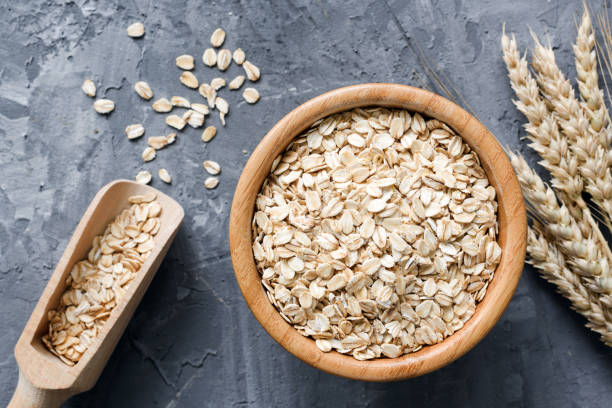“Which one will stop crying? Do you want to say you don’t know what I wanted to use the money for? Ha, CBEX? CBEX? E no go better for una. In fact…” The caller cuts in, “It’s ok now! Please, I don’t have a call card for raining curses on one unseen enemy just because I told you to stop crying. All I know is multiple sources of income is good with the situation of this country but definitely not MMM. I will send some details to your Whatsapp so you can make a choice. Just take it easy on yourself ok?” He hangs up.
No doubt, the present economy where most of the income of an average Nigerian goes for food, places a demand or need for extra income sources in order to pay mounting bills and this could lead to stress, unless smarter investment choices are made. Some close from work and go straight to shops they rented in order to make extra income. Non-office workers who have their own shops, still hawk around in order to make more sales. Some others are into online jobs in addition to the regular job just to make ends meet. A few who have the means invest in properties or government bonds for extra money among many other investment options. Looking at the various sources mentioned, one can see that depending on your pocket, some are more demanding than others. Most Nigerians fall under the ones that lead to real stress which could cause stress induced obesity. Let’s make it make sense as we continue.
Stress is closely linked to obesity through multiple pathways involving behavior, physiology, and cognition. Chronic stress triggers the release of cortisol, a hormone that increases hunger and cravings for high-calorie “comfort or fast foods” rich in sugar and fat, promoting weight gain, especially abdominal fat.
Stress also affects eating behavior by causing overeating or irregular eating patterns, reduces motivation to exercise, disrupts sleep, and can even increase alcohol consumption – all factors that contribute to obesity.
Physiologically, stress activates the hypothalamic-pituitary-adrenal (HPA) axis, leading to hormonal changes that promote fat storage and alter metabolism, making weight loss more difficult. Stress interferes with self-regulation and cognitive control, making it harder to resist unhealthy food choices and maintain healthy habits.
Moreover, obesity itself can cause stress due to social stigma, creating a vicious cycle where stress leads to obesity and obesity increases stress. You can see how very married they really are!
Nevertheless, in this write-up, you will also get to know how to see to their divorce and that, pretty soon.
When stressed, the body releases cortisol, which increases appetite-especially cravings for high-calorie, sweet, fatty, and salty “fast foods”- leading to overeating and weight gain. Cortisol also promotes fat storage, particularly in the abdominal area, which is associated with higher health risks.
One can submit that cortisol mediates the stress-obesity connection by increasing appetite, encouraging abdominal fat storage, and altering metabolism, creating a cycle that can maintain or worsen obesity under chronic stress conditions.
Chronic elevated cortisol can cause insulin resistance and muscle loss, further contributing to weight gain and a slower metabolism. Additionally, individuals vary in cortisol responsiveness, which affects their susceptibility to stress-induced weight gain, meaning that its (stress) effect on Mr. A may not be the same with Mr. B, so comparing yourself with anyone else could be hazardous to your health.
Cortisol here is a major reason why stress stays married to obesity. We can successfully divorce them if we can reduce its level, thereby preventing weight gain. Here’s how: ‘Lifestyle!’ Yes you heard me right – lifestyle.
Primarily, lifestyle changes can help manage stress and improve overall health. Let’s check these out:
– Regular exercise: Physical activity reduces stress and cortisol levels while improving metabolism and insulin sensitivity.
– Adequate sleep: Getting 7–9 hours of quality sleep helps regulate cortisol and hunger hormones, reducing the risk of weight gain.
– Mindful eating and balanced diet: we’ll look into food and vegetables to eat before we conclude.
– Stress reduction techniques: Meditation, deep breathing, and cognitive behavioral therapy can lower cortisol by calming the nervous system and improving emotional resilience.
– Avoiding excessive calorie restriction: Severe dieting can increase cortisol and stress, potentially worsening weight issues. This happens because many people believe that if they can reduce food intake, they will beat obesity and this may make little or no difference because of cortisol.
Now, rather than say you will not eat, so as not to be fat, why don’t you add stress management foods or fruits to your daily meal so as to control the release of the body’s main stress hormone – cortisol.
– Avocados – gives potassium and vitamin B that help regulate blood pressure and reduce cortisol impact.
– Leafy greens (like spinach) – are rich in magnesium, which calms the nervous system and lowers cortisol levels.
– Fatty fish (salmon, mackerel) – provide omega-3 fatty acids that regulate cortisol.
– Nuts (almonds, walnuts) are magnesium-rich and support cortisol regulation.
– Dark chocolate (70%+ cocoa) contains flavonoids and magnesium that help lower cortisol and improve mood.
– Bananas – promote serotonin production and help balance cortisol.
– Green tea and herbal teas – have calming compounds like L-theanine that reduce cortisol release.
By consistently applying the strategies you have learned here, cortisol levels can be managed effectively, helping to prevent stress-related weight gain and improve metabolic health.
In other words, when trying to have more income for the family in this present economy, ensure you eat right, maintain stress-reduction techniques and do all to register a capital ‘NO’ to stress and obesity calling themselves ‘Babe’ in your body.





